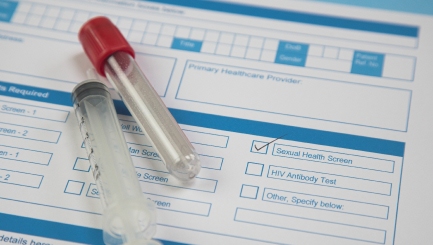Could Fewer Australian Free Clinics Mean A Rise in STIs?
 For years, Brisbane’s only free sexual health clinic has offered a free confidential walk-in service to people concerned about exposure to HIV and other STIs and various other sexual health services, but now the Queensland government has confirmed that it’s cutting 32 jobs at the clinic, effectively closing the service. This has drawn fears sexual wellness could suffer as a result, leading to an increase in the local rates of sexually transmitted infections.
For years, Brisbane’s only free sexual health clinic has offered a free confidential walk-in service to people concerned about exposure to HIV and other STIs and various other sexual health services, but now the Queensland government has confirmed that it’s cutting 32 jobs at the clinic, effectively closing the service. This has drawn fears sexual wellness could suffer as a result, leading to an increase in the local rates of sexually transmitted infections.
As it stands, the Biala House Sexual Health Clinic treats approximately 13,000 people a year, providing services to sex workers, international tourists, and those that either don’t have a GP or can’t afford one. This is why local health professionals, members of the public and even political parties are speaking out on their behalf, concerned for the wellbeing of those at risk of STIs, who have nowhere else to turn.
According to Phil Browne, who has thirty years experience as a registered nurse, ‘Many people will simply stop being tested if they have to make an appointment in advance, and then have to pay to see a GP for a sexual health check. Many will not be comfortable discussing their sexual activity with their family GP. This will result in more people with undiagnosed and untreated STIs spreading their infections to more sexual partners.’ He added, ‘This clinic provides valuable services to Brisbane residents living with HIV, AIDS and other STIs. If this decision is not reversed we can expect a further increase in STI rates in Queensland – though more new infections will remain undetected as fewer people at risk of STIs will be getting tested.’
Paul Martin from Healthy Communities, Queensland’s only LGBTI dedicated health service that was also a victim to the Government’s cuts last year, commented, ‘Brisbane Sexual Health Clinic provides an important role in preventing further transmission of HIV and STIs by testing and treating large numbers of the population, especially those who may have difficulty accessing general practice. It provides a high quality service in a safe and anonymous environment.
He continued, ‘I find it difficult to see how 600 HIV patients can be transferred to GPs in the next 4 weeks. Only specially trained and certified GPs can prescribe HIV medication and there are only a few of them in Brisbane, many already have their books closed. Biala also played a key role in HIV trials by providing expert advice and assistance to GPs and other health professionals. They were there at the start of HIV and have a wealth of knowledge and experience that should not be allowed to be lost.’


Comments are closed.